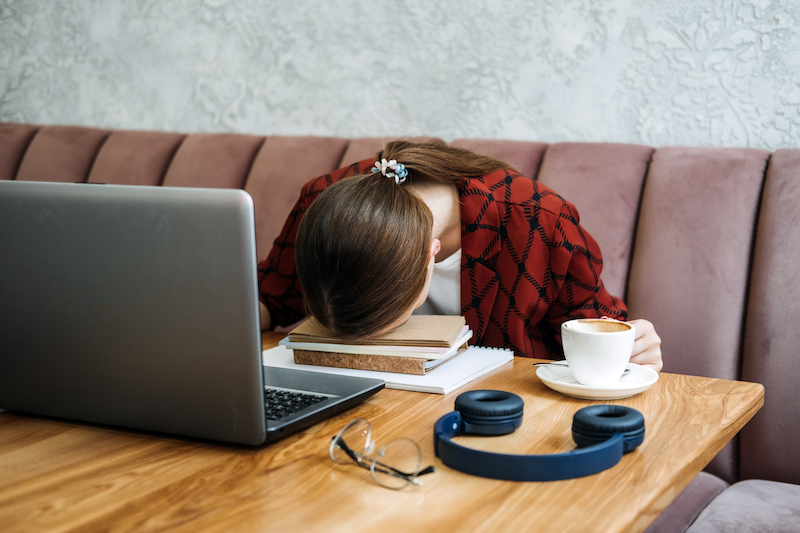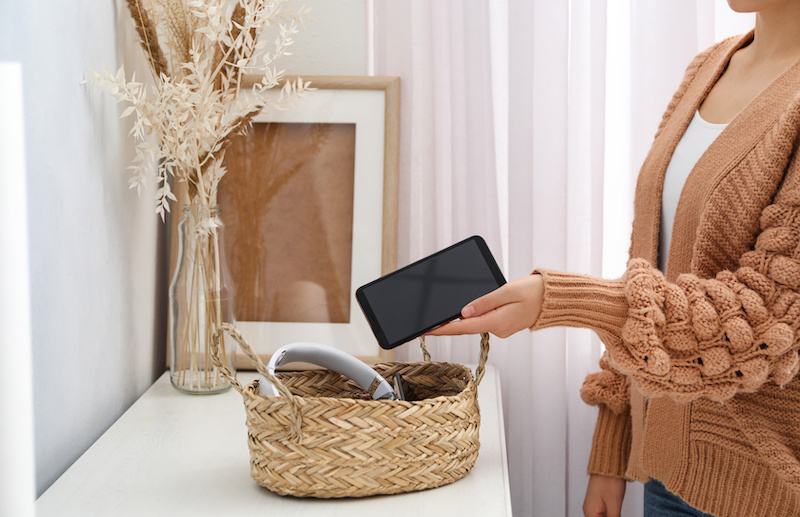Health and Wellness
5 Self-Care Strategies, One Sunday at a Time
 Self-care has become an active topic of discussion in our ever-changing society. With the rise of mental health awareness, and being transparent about our struggles to family, friends, and coworkers, it seems we are getting closer to a place where we can be open about our health and other personal struggles.
Self-care has become an active topic of discussion in our ever-changing society. With the rise of mental health awareness, and being transparent about our struggles to family, friends, and coworkers, it seems we are getting closer to a place where we can be open about our health and other personal struggles.
When people think of self-care, they might think of putting on a face mask, relaxing in a bubble bath, or reading a good book. However, sometimes it’s not all that glamorous or routine. Self-Care can mean you made time to shower, or you finally made a home-cooked meal, or got out of the house to run errands. It varies from person to person.

Making Mental & Physical Health a Priority
Kaylee Reed, Canadian social media strategist and host of the Self-Care Sunday Podcast knew she needed to make her mental and physical health a priority when she was in university.
“At first, I thought it was just school stress, and I was very much in denial that anything was actually seriously wrong. I remember finally going to the doctor and being prescribed antidepressants. My depression eventually evolved into an eating disorder, and I still didn’t really tell anyone in my life that I was struggling.”
In her final year of university, Reed started volunteering at a mental health organization and realized how common mental illness is and that she wasn’t alone. This led to her becoming heavily involved in mental health advocacy, speaking at college campuses across Canada and the United States.
Despite her advocacy work and diving into the startup world at 20-years-old as a full-time entrepreneur, she realized her mental health was suffering again and decided to step away from the company and started to reevaluate what self-care and mental wellbeing meant.
“Then, I hit a roadblock. I was so emotionally exhausted from running a startup, and sharing my story so publicly for years.” It was then that she started the Self-Care Sunday podcast as a new chapter to dissect mental health and self-care from a recovery point of view.

Building Back From Burn Out
“Last year, when I was burnt out from entrepreneurship, I realized that a constant source of self-care for me was candidly speaking with the women in my life – whether best friends or mentors – on everything from relationships to not feeling good enough, to Instagram tips,” says Reed. “As an avid podcast listener, I was also running out of content by female hosts, so I thought…why not create my own show?”
Being a self-employed entrepreneur and working from home, Reed notes she tries to always get outside, even just for ten minutes when the weather is nice to clear her mind. Some of her other self-care tasks include listening to podcasts in the morning with a cup of coffee while getting ready for the day.
“I’m trying to practice gratitude and be very conscious of this feeling because I never thought I’d get here (being 100 per cent happy and feeling like I can take on almost anything). It’s not all just ‘self-care,’ but that self-awareness and proactive self-care have been big for me.”
Reed says there are many variations of self-care and offers five pieces of advice for those who might be struggling to get started, or are looking for different ideas to incorporate into their daily life.

1. Get a Good Night’s Sleep
Prioritize a good night’s sleep. Our body needs sleep to function at our best, and poor sleep habits can leave you starting every day off on the wrong foot. Remove distractions (like TV or phone) from your bedroom if you need to, and if you have trouble falling asleep, try a guided meditation with the Headspace app.

2. Keep a Pulse on Your Mental Health
Your mental health is closely linked to your physical health: besides sleep, make sure you’re eating well, nourishing your body, and drinking lots of water throughout the day. Yes, these are basics from kindergarten, but they truly make a difference!

3. Take Breaks
Take a couple of breaks throughout the day if you’re feeling stressed. I work from home and am always on my laptop, so I like to break up my day by going for a quick walk or doing yoga at home. Moving your body helps break up tension you might be holding.

4. Social Media Cleanse
Do a social media cleanse: make sure the accounts you’re following and the content you’re consuming on the daily is inspiring you, not creating anxiety. Social media has become a host of comparison culture and often we don’t recognize how it makes us feel until we take a minute to examine that feeling. If you feel worse after spending time on Instagram or Facebook, rethink the content you’re reading and the people you’re following.

5. Make Time for Yourself
Take up a new hobby or rediscover an old one. Do something every day that makes you happy. Find new passions or reinvest time in doing things you once loved to do and maybe grew out of as you got older. Everyone is so busy that we forget to make time for ourselves and the things we love.
“Everyone has ten minutes, and sometimes that’s all it takes. Also, I think the term “self-care” is often equated with luxury time, taking a bubble bath, for example. But more often than not, self-care is self-preservation,” explained Reed. “Not only caring for yourself in the moment but caring for your future self. Self-care, a lot of times, is doing the dishes or getting caught up on laundry. Making life easier for yourself, and taking joy in pleasure when you can afford to.”
The Self-Care Sunday podcast is available on Spotify and Apple Podcasts.









